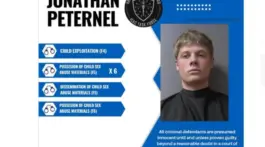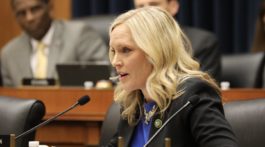by Abdul-Hakim Shabazz, Esq.
You know, I thought I was done with 2023. I was planning to relax and be on auto-pilot for the next few weeks. What’s the phrase, “the best-laid plans of mice and men…” Yes, everything was fine until Judge Patrick Dietrick ruled that Indiana’s rules for running in the primary violated the state and federal constitutions.
A quick recap: Republican U.S. Senate candidate John Rust was denied ballot access because he hadn’t voted in two previous primaries, as required by law. Nor could he get the sign-off from his Jackson County GOP chairwoman that he was a Republican in good standing, so Rust exercised his God-given right and filed a lawsuit. And he won. Marion County Judge Patrick Dietrick ruled that the law violated the U.S. and state constitutions.
Judge Dietrick held the law violated the 1st, 14th, and 17th Amendments (yes, the one that changed how U.S. Senators were selected). But it also violated the state constitution by putting more qualifications to run for office than the constitution allowed. Judge Dietrick pointed out that if a qualification for office was that a person had to be a resident and 18 years old, there was no way they could run in a primary because they could not have voted in the last two. And there’s no legal standard for a county chairman to use when deciding whether to sign off on the candidate. That decision sent shockwaves through Indiana’s political universe. The state appealed, and the Supreme Court decided to hear the case on February 12th (Lincoln’s birthday, which I find somewhat ironic, but I’m digressing).
What’s interesting is that the state asked for a stay in the order while it was being appealed, which the Court denied. That means we can expect a proverbial free-for-all this season, for now. Unless the Court comes back and says the law is unconstitutional, which would technically have to be put out in four days after the oral arguments as the day to withdraw from the primary is February 16th.
All this could have been avoided.
First, it could have been avoided had County chairwoman Amanda Lowery just signed the damn letter and let Rust on the ballot. But she didn’t, so here we are. Secondly, and more importantly, this would not be happening if Republicans and Democrats just followed the lead of Libertarians and paid for their own primaries.
I have argued this for years: why should taxpayers foot the bill for political parties to nominate their candidates for a general election? Why should Democrats pay for Republicans to pick their candidates? Why should Republicans have to pay for how Democrats nominate theirs? And why should any of us have to pay for either party? Political parties should have their own process for selecting candidates, which I am all for, and they should have to foot the bill.
If taxpayers are going to foot the bill, then Indiana should move to a more open primary system. Let everyone run on a combined ballot, and then let the top two candidates run in a general election. And for fun, if a candidate gets more than 60 percent of the vote, they automatically win. Problem solved. Issue addressed.
Hopefully, Indiana lawmakers will look at this next session, and the state will finally fix this broken system. Of course, it was Indiana lawmakers and politicians who broke it in the first place, so good luck with that one.
We now return to auto-pilot for the rest of the year.
Abdul-Hakim Shabazz is the editor and publisher of Indy Politics. He is also an attorney licensed in Indiana and Illinois.














